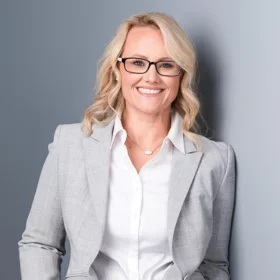Land finally seems to have been spotted by a world desperate to navigate its way out of the rough seas of the unprecedented and most debilitating public health crisis that this generation is likely to ever face. As millions continue to line up for vaccines globally, the end of the COVID-19 pandemic is in sight and just beyond it the eagerly anticipated return to normalcy that had seemed so far away a year ago. For the humanitarian sector that has been at the frontline of the fight against the pandemic, this is a “crisistunity” moment--a term that borrows from Winston Churchill’s observation at the end of the second World War to “never let a good crisis go to waste.”
The crisis part has been painfully obvious to many humanitarian agencies and donors. The sector has been severely affected and in some cases kneecapped by the pandemic. As the world gradually shut down to better contain the spread of the pandemic, the restrictions on travel and movement that were almost universally adopted have disrupted the modus operandi of numerous non-governmental organizations. This has been compounded by the scarcity of funding due to a combination of the global economic recession and diversion of funds by major donors to combat the pandemic.
Closer to the ground, travel and access have been and in the foreseeable future will remain an essential part of the work of the community of professionals in the aid sector. However, international staff have been unable to gain access to crisis hotspots, refugee camps and other sites in the field that they were accustomed to visiting before the pandemic. In most cases, international staff and foreign expatriates have been forced to either relocate or significantly alter their ways of working to align with the new realities of the pandemic.
The pandemic has also exposed the stark inequalities between local and international aid workers. Commentators monitoring the humanitarian sector have observed the prioritization of the well-being and safety of international staff over their local counterparts in the initial months of the pandemic. While this trend is not new, the severity of the pandemic has drawn attention to just how sharp these distinctions are and reawakened debates about the decolonization of aid practices.
Restrictions imposed by the pandemic on humanitarian operations have generated some momentum towards efforts to bridge the gap. Local aid workers and peacebuilders have in many cases stepped up and stepped in to fill the gap. In doing so, they have demonstrated that increased local participation and ownership of initiatives and programs significantly boosts the effectiveness and sustainability of humanitarian interventions and goes a long way in building trust with vulnerable communities that need aid the most. They have also helped debunk some of the deep-rooted attitudes and myths within the sector about the extent to which foreign or international staff are essential to delivery of aid.
Herein lies the opportunity within the crisis: preserving and sustaining the bandwidth claimed by local actors in relation to their international counterparts in the aid sector.
— Davis Makori, Columbia University Obama Foundation Scholar
Even before the pandemic, there was plenty of evidence from places as diverse as South Sudan, Nepal, Myanmar, and the Philippines of the value of shifting power, resources and responsibility from international to local actors. Herein lies the opportunity within the crisis: preserving and sustaining the bandwidth claimed by local actors in relation to their international counterparts in the aid sector. In Somalia, local NGOs distributed translations of WHO guidelines on COVID-19 and helped combat disinformation about the virus. In South Sudan, women peacebuilders have also doubled up as first responders on the frontline to provide support to victims of sexual and gender-based violence in the refugee camps with little to virtually no funding. In Bangladesh, Start Fund Bangladesh has redirected almost its entire funding with 85% going directly to local and national organizations in 2020 as compared to a paltry 5% in 2019. The Start Fund has been hailed as an example of locally-led humanitarian action that has visibly and verifiably improved the effectiveness and efficiency of humanitarian responses and surpassed the commitments made in the Grand Bargain at the 2016 World Humanitarian Summit in Istanbul to provide more support and funding tools to local and national responders.
But now that the end of the pandemic is in sight, the question remains whether the humanitarian aid sector will maintain the trend of localization or whether the pre-COVID-19 balance of power will be restored. While it may be too ambitious to expect systemic changes overnight, the decisions and choices that will be made by the sector have the potential to deliver on the Grand Bargain’s promise of localization. International support and funding will still play a key and deterministic role going forward. However, it can either be done in cooperation and complementarity with local organizations to improve the efficiency and effectiveness of aid as demonstrated in cases such as Bangladesh or it can gradually revert back to the comfort zone of tradition by continuing to deploy international staff and resources, relegating local responders to the margins and entrenching the inequalities of the system. And while it has been devastating in its impact, the pandemic has demonstrated the potential value of genuine partnership between local and international humanitarian actors that hold the key to true reform in the sector.
Makori is an Obama Foundation Scholar in 2020-2021; Professor Cindy M. Lott served as a faculty mentor to Makori throughout this year at request of the Obama Foundation Scholar Program.
Learn more about Columbia’s M.S. in Nonprofit Management, which prepares graduates for leadership roles within mission-driven organizations.
The views expressed are those of the author and do not necessarily represent the views of any other person or entity.


